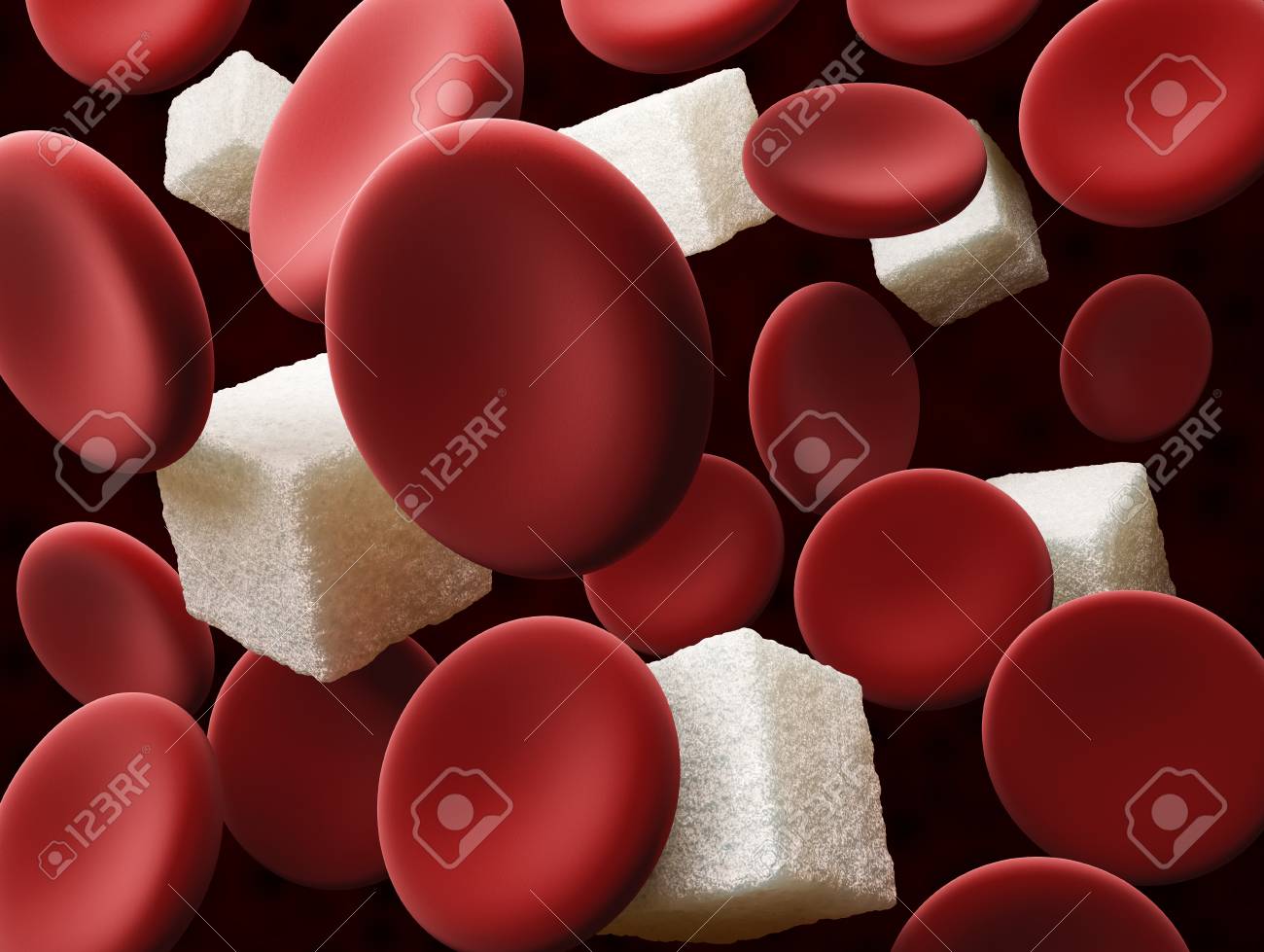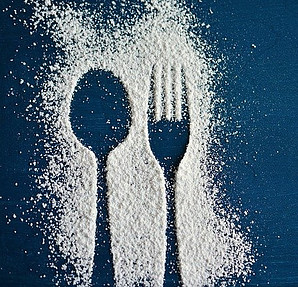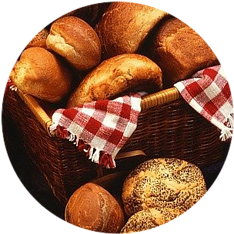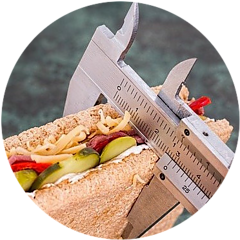
Check Your Blood Sugar Levels
 When we talk about sugar it suddenly comes to our minds sugar beans that we often spoon, in tea, in coffee, or perhaps making homemade desserts. Just as we think of cakes, ice creams, cakes, biscuits, jam, or honey because as we know these foods taste sweet.
When we talk about sugar it suddenly comes to our minds sugar beans that we often spoon, in tea, in coffee, or perhaps making homemade desserts. Just as we think of cakes, ice creams, cakes, biscuits, jam, or honey because as we know these foods taste sweet.
If you take a look at the nutritional label of certain processed foods, you will detect a considerable level of sugar in one format or another such as in artificial juices, carbonated beverages, smoothies, vegetable broth, etc.
Although what some people don´t realize sometimes is that there are food products that don´t have a sweet taste, although they do contain a lot of sugar as in the case of some industrial pieces of bread, cereals, etc. Being perhaps unconscious of the number of refined sugars that could be taken plus the damage this can cause us in long-term health.
According to the journal “Nature Communications” where it has been published ¨sugar damage on health¨, it´s said that there is no need to consume excessive amounts of it for such damage to be noticed, or at least, that’s what they found in mice.
So let’s be aware of certain facts!
1. What about starch?
On the one hand, health authorities recommend taking less sugar by reducing the amount of syrup, chocolate, pastries, etc., and replace them with a greater number of starches. At the same time, it´s confusing because this piece of advice is far from achieving unanimity internationally.
 Doctor and nutritionist researcher David S. Ludwig, overweight and obese specialist at Harvard University explains in an interview that when starch consumption is increased, foods that don´t have a sweet taste are ingested but, whose sugar is released very quickly into the blood such as white bread, white rice, potatoes, inflated rice cakes or chips. And clearly to this problem is added that by decreasing the number of sugary foods, the body feels less need for a fruit supply because sugar is absorbed slower.
Doctor and nutritionist researcher David S. Ludwig, overweight and obese specialist at Harvard University explains in an interview that when starch consumption is increased, foods that don´t have a sweet taste are ingested but, whose sugar is released very quickly into the blood such as white bread, white rice, potatoes, inflated rice cakes or chips. And clearly to this problem is added that by decreasing the number of sugary foods, the body feels less need for a fruit supply because sugar is absorbed slower.
That’s why I would like to share with you some consequences of regular starch consumption...
2. Decreased intellectual capacities
When we have assiduous and excessive doses of sugar, all our cells in the body suffer the consequences, including of course those of the brain. If you wonder why this happens the answer is that those cells need regular sugar levels to work well. Then, the consumption of starch (whose sugar is digested fast), also affects our nervous system, manifesting itself through fatigue, irritability, concentration problems, and decreased memory capabilities.
3. Obesity and related diseases
 A worrying fact for many experts is that for example in the USA, the increase in sugar over the last 50 years has tripled mainly with the consumption of corn syrup used in sauces and other industrial products.
A worrying fact for many experts is that for example in the USA, the increase in sugar over the last 50 years has tripled mainly with the consumption of corn syrup used in sauces and other industrial products.
And although in other countries such as Spain sugar consumption has increased only by 20% according to data from a study of the Autonomous University of Barcelona, what is concerned the most is that both obesity and diseases related to overweight are increasing mainly among the child population.
Diabetes development!
When the sugar molecules pass into the blood, the body responds by secreting the pancreatic hormone called ¨insulin¨, which eases glucose to enter into the cells to keep normal blood sugar levels. Cells will only use the glucose needed to function, so they store the rest in the form of body fats.
What happens is that the excessive insulin removal then depletes its pancreatic production, causing the onset of type 2 diabetes, which is preceded by a state of insulin resistance.
4. Cancer
The Researcher Jennifer Emond, a Ph.D. student in public health at the University of California, San Diego, analyzed changes in the number of carbohydrates, particularly from starch-rich foods like potatoes, consumed by breast cancer survivors for a year. Then she recorded the number of recurrences.
 She emphasized that ¨women who increased carbohydrate intake, especially from starch-rich foods, had a higher risk of breast cancer than women who reduced their consumption”.
She emphasized that ¨women who increased carbohydrate intake, especially from starch-rich foods, had a higher risk of breast cancer than women who reduced their consumption”.
Indeed, the relationship between a high-carb diet and an increased risk of breast cancer has been reported before, but this study focused primarily on starch-shaped carbohydrates. The explanation was that although carbohydrates provide us with the energy and nutrients needed, some carbohydrates aren’t as healthy as they seem. Because refined ones like white bread and white pasta contain more starch than whole grains.
So the women who took foods whose sugar passed faster into the blood,¨ as cancer cells feed on sugar¨, provoked that theïr cells were fed more actively, and as a consequence proliferated faster…
Where can I find good sugar then?
5. Recognize good sugar
I highly recommend consuming pieces of fresh fruit and from the season if possible, as well as starches with a low glycemic index (GI). Which we can find for example in ¨wholemeal bread, wholemeal oat flakes, sweet potatoes, wholemeal buckwheat, wholemeal pasta and brown rice or basmati, lentils, red beans, white beans, and chickpeas¨.
And I say whole foods because they have lower GI than refined foods. It doesn’t mean that you have to go with a glycemic index detector, because simply taking more natural and unprocessed foods automatically involves ingesting lower GI. And on the contrary, foods that have undergone industrial processing or preparation end up having a higher one.
I would like to give you some tips about the effects of food preparation processes on your glycemic index:

- Cooking: the more a food is cooked, the more the GI increases. For example, pasta al dente has a lower GI than well-cooked pasta until soft.
- Refining: whole foods have a lower GI than refined ones, such as brown rice has in GI lower than white rice.
- Crushing: a preparation that requires crushing a food increases GI for example a fruit juice has a higher GI than a piece of the fruit itself.
- Refrigeration: in cooked food that you let cool down the GI decreases again. For example, cold fried potatoes in salad have a GI lower than potatoes cooked and eaten hot.
It´s known nowadays that conventional medicine has specialized over many years in curing, especially curing chemically and mechanical obtaining great results, although we must not forget any longer than many other therapies and forms of medicine are based on ¨preventing and strengthening¨ the body so that it gets sick as little as possible and above all, figuring out what causes that disease to cure the problem from its root.
I think that ¨Prevention is better than cure¨ because at the end of the day the information is there. And if we are talking about sugar and good blood sugar levels, it doesn´t have to be a problem because you can choose and avoid not only getting sick but to feel better, live more fully plus in a more harmonious holistic way.
I hope you enjoyed this article and if you have any questions, you can ask me anytime!
Love always,
Mónica :-))
Recent Posts
- Women’s Health And Menopause
- How To Eat A Healthy Breakfast
- Best Anti-inflammatory Foods
- Turmeric-The Queen Of Spices
- Yoga Classes/Contact